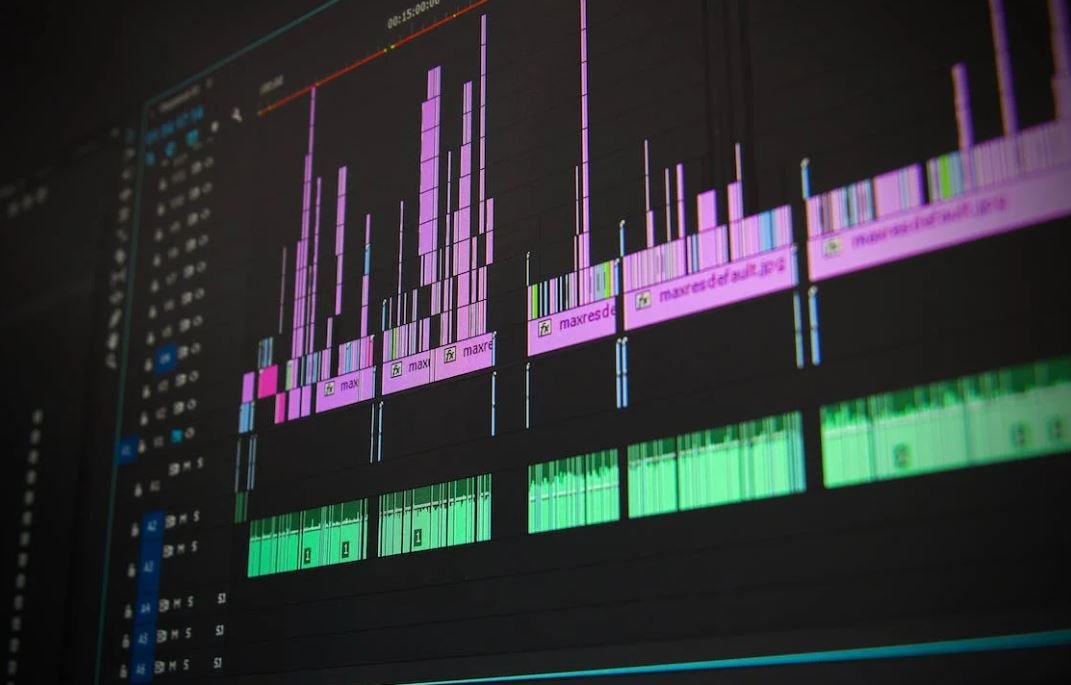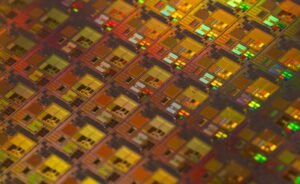AI Is Scary
Artificial Intelligence (AI) is a rapidly advancing technology that has the potential to revolutionize multiple industries. While AI offers numerous benefits and possibilities, many people have concerns about its implications. This article aims to provide an informative overview of why AI can be perceived as scary.
Key Takeaways
- AI poses ethical dilemmas and potential job displacement.
- AI has the ability to outperform humans in specific tasks.
- AI can be prone to biases and errors.
- AI raises privacy and security concerns.
- A balance between innovation and regulation is required.
The Power of AI
Artificial Intelligence has made significant advancements in recent years, enabling machines to perform complex tasks that were once exclusive to humans. AI algorithms can analyze vast amounts of data, recognize patterns, and make predictions with a high degree of accuracy. This impressive capability has led to the automation of various processes, improving efficiency and productivity in many industries. *AI has the potential to transform society and solve intricate problems.*
The Ethical Dilemmas
As AI continues to progress, ethical dilemmas arise. One major concern is the potential job displacement due to automation. It is predicted that AI could replace a significant number of jobs, leading to unemployment and economic inequality. Additionally, ethical dilemmas emerge when AI is entrusted with making decisions that could impact human lives, such as in healthcare and autonomous vehicles. *Determining who is responsible for AI’s actions remains a complex issue.*
Biases and Errors
AI systems are trained using vast amounts of data, but if the data is biased, the algorithms may inadvertently perpetuate prejudice and discrimination. Bias in AI algorithms has been highlighted in areas such as facial recognition, criminal justice, and hiring processes. These biases can have far-reaching consequences and exacerbate societal inequalities. *Ensuring unbiased AI systems is a crucial challenge researchers and developers face.*
Privacy and Security Concerns
With AI’s ability to collect, analyze, and process massive amounts of data, privacy and security concerns are heightened. There is a risk of personal information being misused or falling into the wrong hands. Data breaches and unauthorized access to AI systems can lead to severe consequences, both at an individual and organizational level. *Safeguarding personal data while harnessing AI’s potential is a delicate balance.*
A Balancing Act
While the potential benefits of AI are vast, a balance must be struck between innovation and regulation. Stringent regulations and guidelines are necessary to mitigate the risks associated with AI. These regulations should encourage responsible practices, transparency, and accountability in the development and deployment of AI systems. *Finding the right balance between embracing innovation and safeguarding society remains crucial.*
| Industry | AI Application |
|---|---|
| Healthcare | Medical diagnosis, drug discovery, personalized medicine |
| Finance | Fraud detection, algorithmic trading, credit scoring |
| Transportation | Autonomous vehicles, route optimization, traffic management |
| Effect | Description |
|---|---|
| Unemployment | AI automation may replace certain job roles, leading to unemployment. |
| New Job Opportunities | AI advancements can create new job roles and demand for AI-related skills. |
| Economic Inequality | The distribution of wealth may become more uneven due to AI’s impact on jobs. |
| Domain | Impact |
|---|---|
| Facial Recognition | Higher error rates for certain racial and gender groups. |
| Criminal Justice | Unfair sentencing recommendations based on biased data. |
| Hiring Processes | Discrimination against certain groups during the selection process. |
AI’s potential is vast, but its implications raise valid concerns. Ethical dilemmas, biases, privacy issues, and job displacement all contribute to the perception that AI is scary. However, acknowledging and addressing these concerns helps pave the way for responsible AI development and utilization. It is crucial for society to maintain a proactive and thoughtful approach to AI, ensuring its implementation aligns with our values and promotes a fair and equitable future.

Common Misconceptions
AI is Sentient
One common misconception about AI is that it is sentient, meaning it possesses consciousness and self-awareness. However, AI systems are designed to perform specific tasks based on algorithms and data input, but they do not possess true consciousness or emotions.
- AI does not have feelings or subjective experiences.
- AI lacks the ability to independently self-reflect or make decisions based on personal preferences.
- AI can only operate within the boundaries of its programming and is not capable of autonomy.
AI Will Replace Humans
Another misconception is that AI will replace humans in many job roles, leading to mass unemployment. While it is true that AI can automate certain tasks and streamline processes, it is unlikely to completely replace human workers.
- AI excels at repetitive, rule-based tasks, but lacks creativity and adaptability.
- AI can augment human capabilities, increase efficiency, and free up time for more complex decision-making.
- Certain jobs may evolve or become obsolete, but new opportunities and roles will also emerge.
AI is Inherently Biased
There is a common misconception that AI systems are inherently biased, meaning they discriminate against certain groups or individuals. While AI can learn from biased data, it is actually the responsibility of the developers to ensure fairness and mitigate bias.
- AI bias can be a result of flawed data or biased training sets, not an inherent quality of AI.
- Through careful design, developers can implement fairness measures to reduce bias in AI systems.
- Transparency, accountability, and ongoing monitoring are essential to detect and rectify bias in AI algorithms.
AI Will Take Over the World
One of the most pervasive misconceptions about AI is the fear that it will lead to a dystopian future where machines dominate humans and take over the world. This notion is often fueled by science fiction films and novels, but it is far from the reality.
- AI systems are limited to the specific tasks they are designed for and do not possess the intention or capability to take over the world.
- AI operates based on rules and algorithms set by humans, providing no inherent motivation for world domination.
- Ethical frameworks and regulations are being developed to ensure responsible and beneficial use of AI technology.
AI is Perfect and Error-Free
Contrary to popular belief, AI systems are not perfect and can make mistakes. While AI technology continues to advance, it is still prone to errors and requires ongoing monitoring and improvement.
- AI algorithms can be biased, make incorrect predictions, or produce misleading results if not properly calibrated.
- Human oversight and intervention are crucial to evaluate and correct AI errors.
- Continual learning and feedback loops are essential for AI systems to improve and minimize mistakes over time.

Introduction:
Artificial Intelligence (AI) has made remarkable advancements, revolutionizing various fields with diverse applications. While AI offers numerous benefits, it also raises concerns about the potential dangers it poses. This article highlights ten tables that shed light on the aspects of AI that can be considered scary.
1. Social Media Manipulation:
AI algorithms are capable of manipulating social media platforms, influencing user behavior, and spreading misinformation.
2. Facial Recognition Surveillance:
The use of AI-powered facial recognition technology by governments and organizations has raised significant privacy concerns.
3. Job Automation:
AI has the potential to automate various jobs, leading to concerns about unemployment and the need for reskilling.
4. Deepfakes:
AI algorithms can create convincing manipulated videos, known as deepfakes, undermining trust in visual media.
5. Autonomous Weapons:
The development of AI-powered autonomous weapons raises questions about the potential for unintended consequences and loss of control.
6. Privacy Breaches:
The collection and use of personal data by AI systems raise concerns about privacy breaches and unauthorized access.
7. Black Box Decision-Making:
AI systems can make complex decisions that humans struggle to understand, raising concerns about transparency and accountability.
8. Job Bias:
AI algorithms can inadvertently perpetuate biases, leading to discrimination in areas such as hiring, lending, and criminal justice.
9. AI Supremacy:
The concept of a superintelligent AI that surpasses human intelligence raises concerns about its potential to outsmart and control humans.
10. Ethical Dilemmas:
AI ethics is a complex field, and the inability to address ethical dilemmas adequately raises concerns about unintended consequences and harm.
Conclusion:
While the benefits of AI are vast and undeniable, it is crucial to acknowledge and address the potential risks and dangers it poses. Mitigating these concerns through responsible development, regulation, and ethical considerations is key to harnessing the power of AI for the betterment of humanity. As we move forward, it is essential to balance innovation with a deep understanding of the potential implications AI can have on our society.
AI Is Scary – Frequently Asked Questions
Question: What is AI?
Answer: AI, or Artificial Intelligence, refers to the development of computer systems that can perform tasks without explicit programming, aiming to mimic human intelligence and decision-making.
Question: How does AI work?
Answer: AI systems work by utilizing algorithms and large datasets, allowing machines to recognize patterns, learn from data, and make predictions or decisions based on the information provided.
Question: Why do some people find AI scary?
Answer: The fear surrounding AI often stems from concerns about its potential impact on employment, privacy, security, and ethical implications like biased decision-making or loss of human control.
Question: Can AI replace human jobs completely?
Answer: While AI may automate certain tasks, there is a consensus that it will likely lead to a transformation of job roles rather than complete replacement. New jobs may emerge, requiring different skills.
Question: Can AI become self-aware and take over the world?
Answer: There is no scientific evidence to suggest that AI will become self-aware or possess intentions to take over the world. The portrayal of AI as malevolent often stems from science fiction narratives rather than scientific reality.
Question: What are the ethical concerns associated with AI?
Answer: Ethical concerns include privacy infringement, biased decision-making algorithms, lack of transparency, responsible AI deployment, and possible misuse of AI technologies by malicious actors.
Question: How can AI be used for good?
Answer: AI has the potential to solve complex problems, improve healthcare, enhance transportation systems, optimize resource allocation, enable personalized education, and contribute to scientific advancements.
Question: How is AI being regulated?
Answer: Governments and international organizations are working on developing regulatory frameworks to address AI’s ethical and legal challenges. These frameworks aim to ensure responsible AI development, deployment, and use.
Question: Is AI technology being used ethically right now?
Answer: While AI technology is being used for various applications, ethical concerns regarding its usage persist. Efforts are being made to promote transparency, accountability, and ethical guidelines in AI development and deployment.
Question: How can individuals benefit from AI without fearing it?
Answer: Staying informed and actively participating in discussions and decisions related to AI development and usage can help individuals take advantage of AI’s benefits while addressing potential challenges and concerns.




